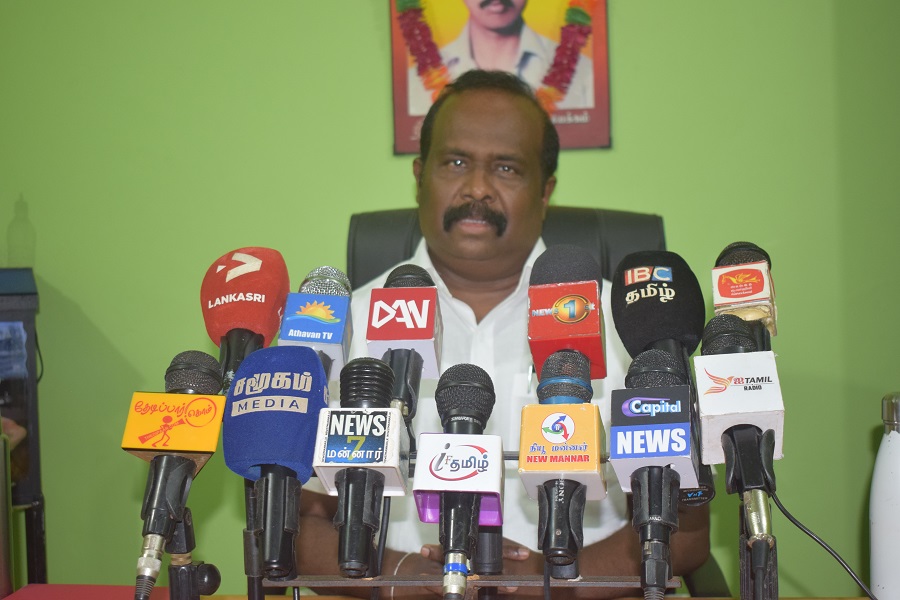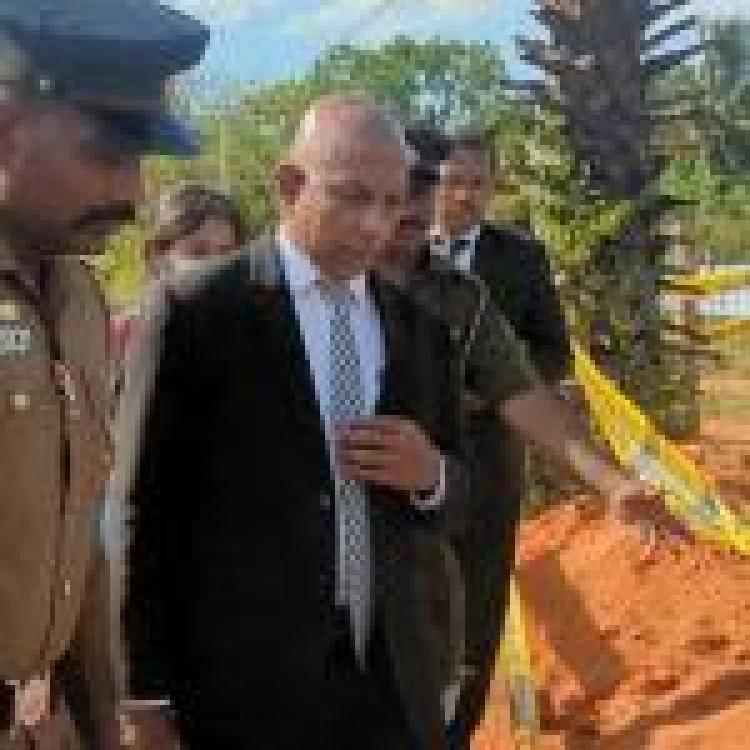Member of Parliament Selvam Adaikalanathan held a press conference today in Mannar, addressing the recent resignation of Mullaitivu District Judge T. Saravanarajah. The judge's departure from his position and the country itself was prompted by death threats and mounting pressure from the Sri Lankan government, shedding light on the challenges faced by Tamil judges in the North-East region.
Judge Saravanarajah, who resigned on September 23rd, cited threats and pressure linked to his involvement in the Kurunthurmalai archaeological site cases as the primary reasons for his decision. The contentious nature of these cases has attracted significant attention, and Judge Saravanarajah revealed that he faced immense pressure from various individuals within the government to alter his judgments.
Sinhala nationalist MP Sarath Weerasekara, in particular, was mentioned by the judge for making threats during parliamentary debates and other public forums. The situation escalated when the security provided for Judge Saravanarajah was substantially reduced, and he found himself under surveillance by military intelligence officers.
A critical turning point occurred on September 21st when the Attorney General summoned Judge Saravanarajah, further intensifying the pressure on him to change his judgments related to the Kurunthurmalai archaeological site cases. Fearing for his safety and that of his family, the judge made the difficult decision to resign and subsequently fled the country.
Selvam Adaikalanathan, addressing the media in Mannar, expressed deep concern over the circumstances surrounding Judge Saravanarajah's resignation. Adaikalanathan emphasised the need for a thorough investigation into the allegations.
The developments surrounding the resignation have raised broader concerns about the state of judicial independence in Sri Lanka and the security of judges in the North-East. Adaikalanathan called for a reevaluation of the judiciary, emphasising that threats and intimidation should have no place in a fair and impartial legal system.


